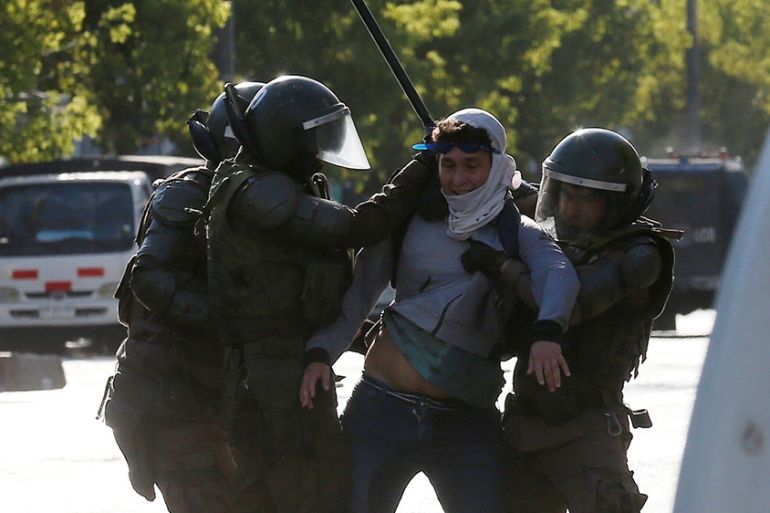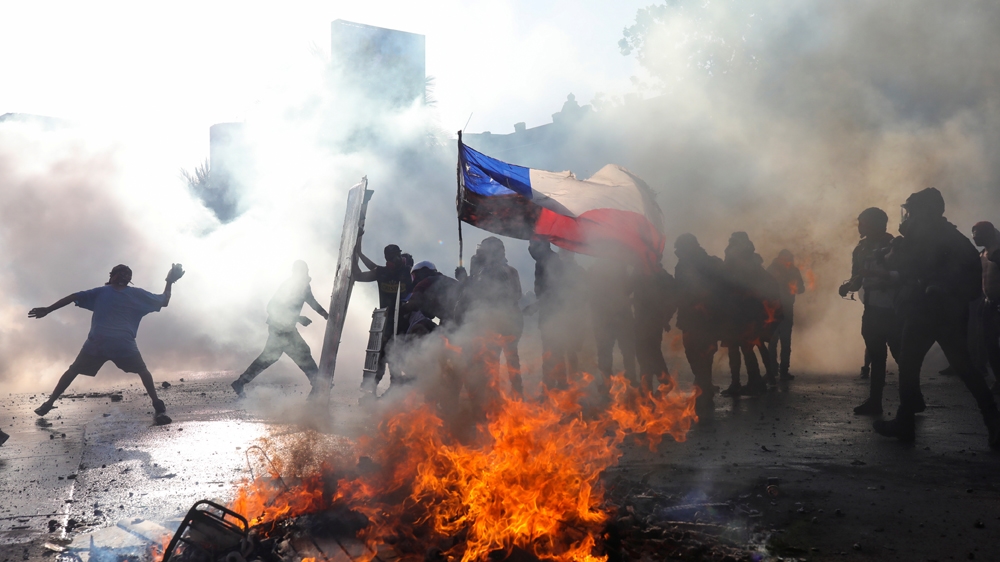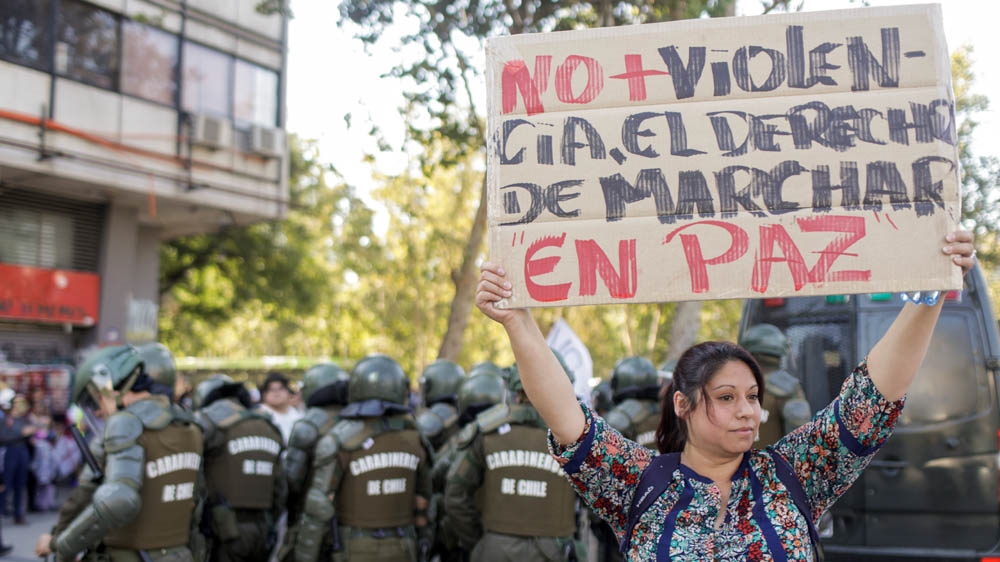Chile rights abuses at worst since dictatorship: INDH report
In damning report, Chile’s National Human Rights Institute says crackdown ‘produced most serious abuses since 1989’.

Crackdowns on ongoing protests in Chile have resulted in the most serious human rights violations in 30 years, since the country was ruled by military dictatorship, according to the country’s official human rights body.
The state response to peaceful mass protests and incidents of violence “produced, as a whole, the most serious and multiple human rights violations committed since 1989,” National Human Rights Institute (INDH) director Sergio Micco told reporters on Monday.
Keep reading
list of 3 itemsBid to impeach Chile’s Pinera over protest handling rejected
Anger in Chile as ally of president says rights abuses necessary
In 1973, Chile’s military overthrew elected president Salvador Allende, ushering in the 17-year rule of General Augusto Pinochet. Thousands of Chileans were executed, forcibly disappeared, tortured and imprisoned for political reasons during the Pinochet dictatorship, which ended in 1990.
Indiscriminate use of force, torture and sexual violence have been repeated in time and space during the current crisis, Micco said as the institute released its 109-page annual report, which focused on the crisis that began in mid-October.
“This occurred in democracy, in our democracy. How was this possible?” he said. “That is what this report, which we never thought we would have to write, is about.”

Protests against structural inequality and social conditions erupted in Chile more than two months ago, and the response of security forces has been highly condemned. Prosecutors are investigating at least 26 deaths in the context of the crisis, including killings by military and police forces.
INDH has visited thousands of hospitalised protesters and bystanders, including more than 350 with eye injuries largely caused by police projectiles. The institute has filed hundreds of legal actions against authorities for homicide, torture, sexual violence and other abuses.
Jan Jarab, Office of the UN High Commissioner for Human Rights representative in Chile, voiced support for the new INDH report, calling it the “most complete” of all reports on human rights violations in Chile and noting its corroboration of findings concerning the “use of indiscriminate force against peaceful protests”.
Shortly after INDH presented its report, Chilean President Sebastian Pinera gave a 29-minute speech the presidential palace. He did not refer to the report, only generally mentioning the importance of “total, absolute and unrestricted respect for the human rights of everyone at all times in all places and under all circumstances”.
Pinera has previously voiced his firm commitment to ensure human rights violations over the course of the crisis are investigated and prosecuted. The government and security forces, however, have framed them as isolated incidents of excesses, vehemently rejecting international reports claiming otherwise.
‘It’s repression no matter what’
Despite the condemnations by the UN and other international entities and despite government pledges to respect human rights, police crackdowns have been consistently violent, abusive and indiscriminate, according to Francisco Sepulveda, one of the doctors treating injured protesters on a volunteer basis in Antofagasta, 1,360km (845 miles) north of Santiago.
“It is repression no matter what,” he told Al Jazeera, adding that crackdowns in marginalised neighbourhoods have been particularly violent.
Monday’s speech by Pinera preceded his ceremonial signing of a constitutional reform bill that lays out the path to a new constitution with citizen participation, one of the early key demands of protesters.

An April 26, 2020 plebiscite will ask Chileans whether they want a new constitution and whether they would prefer it be written by an all-citizen convention or a mixed citizen-legislator convention. Elections would be held in October to elect the body.
“This plebiscite, the first in 30 years, should serve to leave behind the violence and divisions we have seen resurface with pain and sadness in recent days,” said Pinera.
The latest poll released Monday by CADEM, a respected polling and marketing company in Chile, reveals that Pinera’s approval rating has dropped to 11 percent and his disapproval rating has risen to 81 percent.
Other recent polls by CADEM indicate two-thirds of Chileans think protests should continue. Demonstrations are expected to persist well into the new year.
In its report, INDH included a series of recommendations to the government to put an immediate stop to human rights violations, prevent their recurrence and ensure justice and reparations for victims.